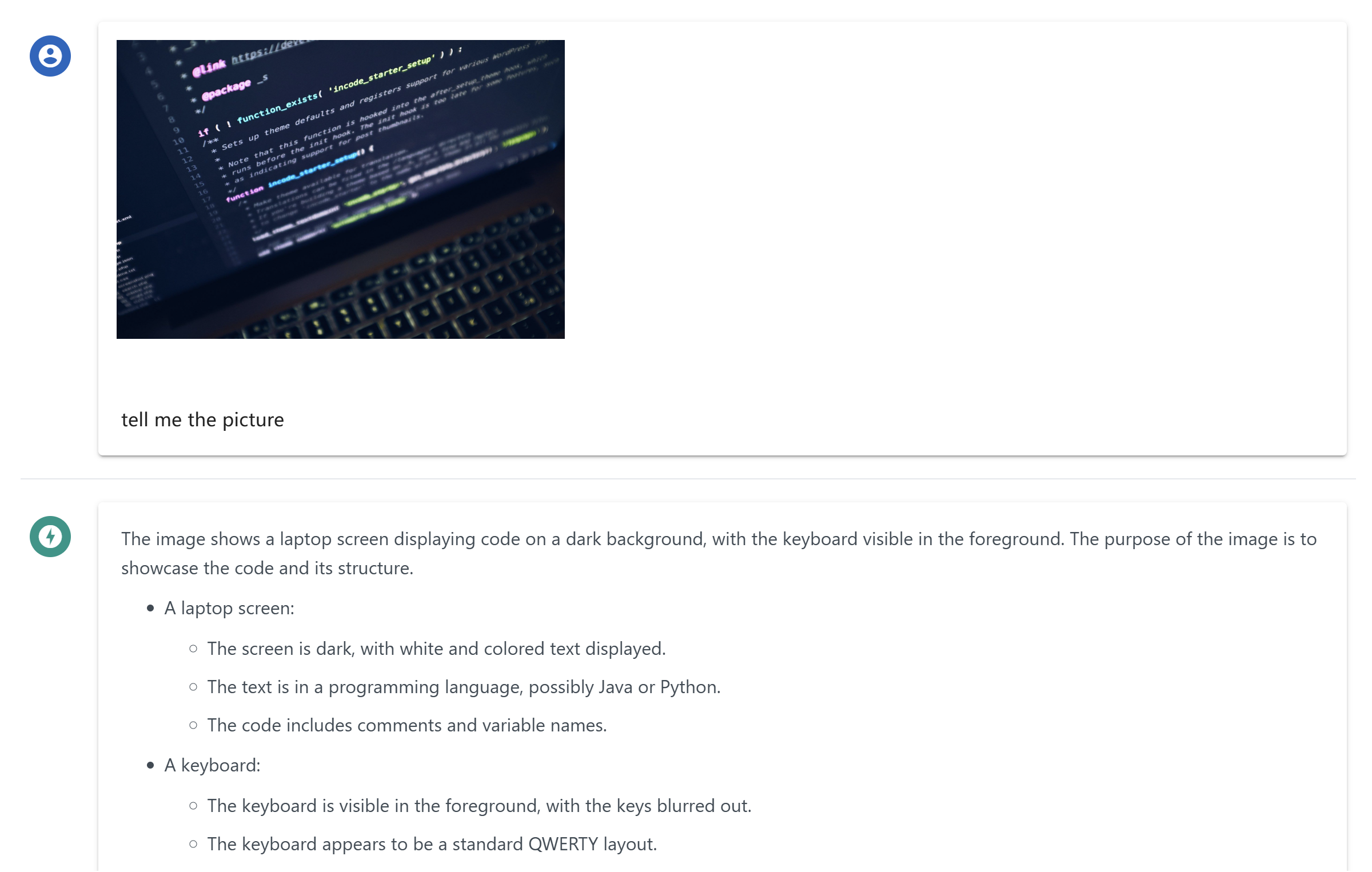Aplicación de Escritorio Mcp Chat
Una aplicación de chat de escritorio que aprovecha MCP (Protocolo de Contexto del Modelo) para interactuar con otros LLMs.
Resumen
¿Qué es chat-mcp?
chat-mcp es una aplicación de chat de escritorio que utiliza el Protocolo de Contexto del Modelo (MCP) para facilitar la comunicación con varios Modelos de Lenguaje Grande (LLMs). Esta innovadora aplicación permite a los usuarios interactuar sin problemas con múltiples modelos de IA, mejorando su experiencia de chat al aprovechar las capacidades únicas de cada modelo.
Características de chat-mcp
- Soporte Multi-Modelo: chat-mcp puede conectarse a varios LLMs, permitiendo a los usuarios elegir el mejor modelo para sus necesidades.
- Interfaz Amigable: La aplicación está diseñada con una interfaz limpia e intuitiva, lo que facilita a los usuarios navegar y utilizar sus características.
- Comunicación en Tiempo Real: Los usuarios pueden participar en conversaciones en tiempo real, recibiendo respuestas instantáneas de los LLMs conectados.
- Configuraciones Personalizables: Los usuarios pueden ajustar configuraciones para adaptar la experiencia de chat según sus preferencias.
- Código Abierto: Al ser un proyecto de código abierto, chat-mcp fomenta las contribuciones de la comunidad y la transparencia en el desarrollo.
Cómo Usar chat-mcp
- Descargar e Instalar: Visita el repositorio de chat-mcp para descargar la última versión de la aplicación.
- Configura Tu Cuenta: Sigue las instrucciones en pantalla para crear una cuenta o iniciar sesión.
- Conéctate a LLMs: Elige entre los LLMs disponibles para conectarte. Puedes cambiar entre modelos según sea necesario.
- Comienza a Chatear: Inicia tu conversación escribiendo en la ventana de chat. El LLM responderá según el contexto proporcionado.
- Explora las Características: Aprovecha las configuraciones personalizables para mejorar tu experiencia de chat.
Preguntas Frecuentes
¿Qué es el Protocolo de Contexto del Modelo (MCP)?
El Protocolo de Contexto del Modelo (MCP) es un marco que permite a diferentes modelos de IA comunicarse y compartir contexto, lo que permite conversaciones más coherentes y contextualmente relevantes.
¿Es chat-mcp gratuito para usar?
Sí, chat-mcp es una aplicación de código abierto, lo que significa que es gratuita para descargar y usar. También puedes contribuir a su desarrollo si lo deseas.
¿Puedo contribuir al proyecto chat-mcp?
¡Absolutamente! Las contribuciones son bienvenidas. Puedes enviar problemas, solicitudes de características o incluso solicitudes de extracción en el repositorio de GitHub.
¿Qué plataformas soporta chat-mcp?
chat-mcp está diseñado para ser multiplataforma, soportando los principales sistemas operativos como Windows, macOS y Linux.
¿Cómo puedo reportar un error o problema?
Si encuentras algún error o problema, por favor repórtalo en la página de problemas del repositorio. Tu retroalimentación es valiosa para mejorar la aplicación.
Al utilizar chat-mcp, los usuarios pueden mejorar su interacción con los modelos de IA, haciendo que las conversaciones sean más atractivas e informativas.
Detalle
Configuración del Servidor
{
"mcpServers": {
"chat-mcp": {
"command": "docker",
"args": [
"run",
"-i",
"--rm",
"ghcr.io/metorial/mcp-container--ai-ql--chat-mcp--chat-mcp",
"npm run start"
],
"env": {}
}
}
}